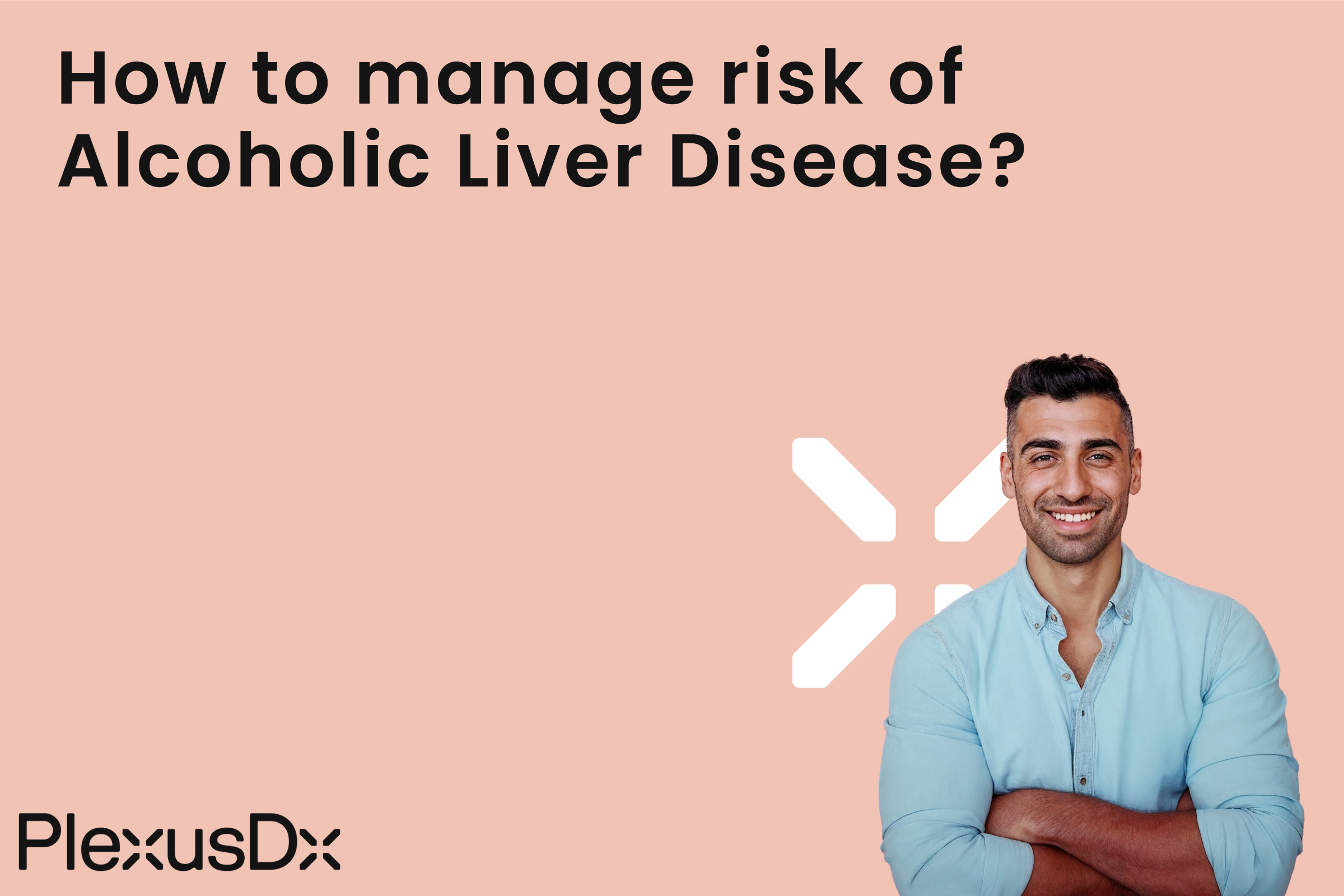Alcoholic Liver Disease
Alcoholic liver disease (ALD) represents a severe medical condition which develops from long-term excessive alcohol use resulting in liver damage that spans from fatty liver to cirrhosis and liver cancer. The progression of this disease develops stealthily because it begins without symptoms thus making prompt detection and treatment essential. This blog post examines the Alcoholic Liver genetic trait through Precision Health & Wellness tests offered by PlexusDx while exploring genetic predispositions and their implications for at-risk individuals.
Genetic Trait
Alcoholic liver disease (ALD) represents multiple liver disorders that emerge as a result of persistent alcohol abuse. The initial stage of liver disease involves fat accumulation in liver cells which is reversible yet can progress to severe liver damage if alcohol intake continues. Continuous progression of ALD results in fatty liver development (steatosis), alcoholic hepatitis, and chronic hepatitis leading to liver fibrosis or cirrhosis. The progression of ALD leads to liver dysfunction which triggers serious health problems including jaundice and coagulopathy while toxins build up in the bloodstream ultimately impairing brain function through hepatic encephalopathy. Severe cases can bring about life-threatening complications including ascites which is abdominal fluid accumulation and variceal bleeding from increased portal vein pressure.
The genetic basis for ALD has received moderate-level scientific support which suggests that genetic factors may predispose individuals to develop the disease. ALD susceptibility stems from genetic factors but environmental influences such as alcohol consumption continue to play a major role in triggering the disease. Effective management of ALD requires early detection and intervention alongside thorough testing to understand genetic predispositions. If you have concerns about your ALD risk these actionable tips are available for your consideration.
- Limit Alcohol Consumption: The most fundamental strategy for preventing and treating ALD involves abstaining from alcohol consumption. People who carry genes that make them susceptible to ALD need to pay special attention to their alcohol consumption habits.
- Healthy Lifestyle Choices: A healthy eating strategy combined with regular exercise maintains liver health and general wellness while slowing down disease advancement.
- Regular Monitoring: People who have family history of ALD or genetic risk factors must participate in regular health screenings and medical consultations to monitor liver function and identify early liver damage signs.
Grasping the genetic characteristics linked to Alcoholic Liver disease helps people manage their health better while reducing the dangers of drinking too much alcohol. The Precision Health & Wellness tests from PlexusDx equip individuals with critical genetic insights for making better-informed lifestyle choices. Begin your journey to better health by checking out PlexusDx's Precision Health & Wellness tests which you can find on PlexusDx.com and both Amazon and Walmart. When it comes to your health remember that knowledge represents power. Maintaining awareness of your health status and taking active steps toward prevention should always be your primary focus.

Share:
Genetic impact on snoring and effective management?
Genetic impact on snoring and effective management?